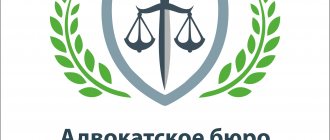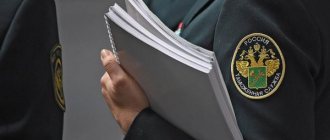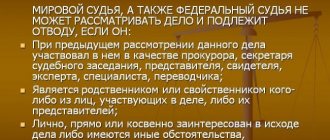1. The prosecutor considers a criminal case received with an indictment, and within 2 days makes one of the following decisions on it: 1) on approving the indictment and sending the criminal case to court; 2) on the return of the criminal case for additional inquiry or re-drafting of the indictment if it does not comply with the requirements of Article 225 of this Code with its written instructions. In this case, the prosecutor may set a period of no more than 10 days for conducting an additional inquiry, and no more than 3 days for re-drafting the indictment. Further extension of the period of inquiry is carried out on a general basis and in the manner established by parts three to five of Article 223 of this Code; 3) on the termination of a criminal case on the grounds provided for in Articles 24 - 28 of this Code; 4) on sending a criminal case for preliminary investigation.
2. When approving the indictment, the prosecutor has the right, by his decision, to exclude from it certain counts of the charge or to reclassify the charge to a less serious one.
2.1. Having established that by the time the criminal case is sent to the court, the period of house arrest or the period of detention is insufficient for the court to fulfill the requirements provided for in part three of Article 227 of this Code, the prosecutor, if there are grounds, initiates a petition before the court to extend the period of house arrest or the period of detention. guards.
3. A copy of the indictment with attachments is handed over to the accused, his defense attorney and the victim in the manner prescribed by Article 222 of this Code.
4. The prosecutor’s decision to return the criminal case to the inquirer for additional inquiry or re-drafting of the indictment may be appealed by the inquirer with the consent of the head of the inquiry body to a higher prosecutor within 48 hours from the moment the investigator received the criminal case. The superior prosecutor, within 3 days from the receipt of the relevant materials, makes one of the following decisions: 1) to refuse to satisfy the interrogator’s request; 2) to cancel the decision of the lower prosecutor. In this case, the superior prosecutor approves the indictment and sends the criminal case to court.
5. An appeal of the prosecutor’s decision specified in paragraph 2 of part one of this article in the manner established by part four of this article suspends its execution, as well as the execution of the prosecutor’s instructions related to this decision.
Article 226.1. Code of Criminal Procedure of the Russian Federation. The basis and procedure for conducting an inquiry in an abbreviated form
- An inquiry in an abbreviated form is carried out in the manner established by Chapter 32 of this Code, with the exceptions provided for by this chapter.
- An inquiry in an abbreviated form is carried out on the basis of a request from a suspect to conduct an inquiry in a criminal case in an abbreviated form and if the following conditions are simultaneously met: 1) a criminal case has been initiated against a specific person on the grounds of one or more crimes specified in paragraph 1 of part three of Article 150 of this Code; 2) the suspect admits his guilt, the nature and extent of the harm caused by the crime, and also does not challenge the legal assessment of the act given in the decision to initiate a criminal case; 3) there are no circumstances provided for in Article 226.2 of this Code that preclude the conduct of an inquiry in an abbreviated form.
Article 226.2. Code of Criminal Procedure of the Russian Federation. Circumstances excluding the conduct of an inquiry in an abbreviated form
- The inquiry cannot be carried out in an abbreviated form in the following cases: 1) the suspect is a minor; 2) there are grounds for proceedings to apply compulsory medical measures in the manner established by Chapter 51 of this Code; 3) the suspect belongs to the category of persons in respect of whom a special procedure for criminal proceedings is applied, established by Chapter 52 of this Code; 4) a person is suspected of committing two or more crimes, if at least one of them does not relate to the crimes specified in paragraph 1 of part three of Article 150 of this Code; 5) the suspect does not speak the language in which criminal proceedings are conducted; 6) the victim objects to the conduct of the inquiry in an abbreviated form.
- If the circumstances provided for in part one of this article become known or arise after the decision to conduct an inquiry in an abbreviated form is made, but before the criminal case is sent to the prosecutor for approval of the indictment, the person in charge of the criminal case makes a decision to conduct the inquiry in general ok. If the circumstances provided for in part one of this article become known or arise after the criminal case is received by the prosecutor for approval of the indictment and before the criminal case is sent to the court, the prosecutor makes a decision to send the criminal case to the investigator for conducting an inquiry in the general manner. If the circumstances provided for in the first part of this article become known or arise in the course of judicial proceedings before the court retires to the deliberation room to pronounce a verdict, the judge returns the criminal case to the prosecutor to transfer it according to jurisdiction and conduct an inquiry in the general manner.
Article 226.4. Code of Criminal Procedure of the Russian Federation. Petition for conducting an inquiry in an abbreviated form
- If there are conditions provided for by this chapter for conducting an inquiry in an abbreviated form, before the start of the first interrogation, the interrogator explains to the suspect the right to apply for an inquiry in an abbreviated form, the procedure and legal consequences of conducting an inquiry in an abbreviated form, about which a corresponding note is made in the protocol of interrogation of the suspect.
- The suspect has the right to file a petition to conduct an inquiry in an abbreviated form no later than 2 days from the day on which the right to file such a petition was explained to him. A petition to conduct an inquiry in an abbreviated form is submitted to the investigator in writing and must be signed by the suspect, as well as his defense attorney.
- A petition received from a suspect to conduct an inquiry in an abbreviated form is subject to consideration by the investigator within no more than 24 hours from the moment of its receipt. Based on the results of the consideration, the inquiry officer makes one of the following decisions: 1) to satisfy the petition and to conduct an inquiry in an abbreviated form; 2) to refuse to satisfy the petition in the presence of circumstances that prevent the conduct of an inquiry in an abbreviated form.
- The decision to satisfy the petition and to conduct an inquiry in an abbreviated form or the decision to refuse to satisfy the corresponding petition may be appealed in the manner established by Chapter 16 of this Code.
- Notification of the satisfaction of the suspect's request and the conduct of an inquiry in an abbreviated form is sent to the prosecutor, as well as the victim, within 24 hours from the date of the relevant decision. The notice explains to the victim the procedure and legal consequences of conducting an inquiry in an abbreviated form, as well as the right to object to the conduct of an inquiry in an abbreviated form.
Criminal Procedure Code of the Russian Federation:
Article 226.8. Decisions of the prosecutor in a criminal case received with an indictment
1. The prosecutor considers a criminal case received with an indictment, and within 3 days makes one of the following decisions on it:
1) on approval of the indictment and on sending the criminal case to court;
2) on the return of the criminal case for the re-drafting of the indictment if it does not comply with the requirements of part one of Article 226.7 of this Code, setting for this a period of no more than 2 days;
3) on sending the criminal case to the investigator for conducting an inquiry in the general manner in the following cases:
a) the presence of circumstances provided for in part one of Article 226.2 of this Code;
b) if during the criminal proceedings there were significant violations of the requirements of this Code, resulting in infringement of the rights and legitimate interests of participants in criminal proceedings;
c) if the collected evidence in the aggregate is not sufficient for a reasonable conclusion about the event of a crime, the nature and extent of the harm caused by it, as well as the guilt of the person in committing the crime;
d) the presence of sufficient grounds to believe that the accused is self-incriminating;
4) on the termination of the criminal case received from the investigator on the grounds provided for in Articles 24, , , and 28.1 of this Code.
2. When approving an indictment, the prosecutor has the right, by his decision, to exclude from it certain counts of the charge or to reclassify the charge to a less serious one.
3. A copy of the indictment with attachments is handed over to the accused, his defense attorney, the victim and (or) his representative in the manner prescribed by Article 222 of this Code. After delivering copies of the indictment, the prosecutor sends the criminal case to the court, and notifies the accused, his defense attorney, the victim and (or) his representative.
4. The prosecutor’s decision to return the criminal case to the inquirer for redrafting the indictment or to send the criminal case to the inquirer for conducting an inquiry in the general manner may be appealed with the consent of the head of the inquiry body to a higher prosecutor by the inquirer within 24 hours from the moment the investigator receives the criminal case. The superior prosecutor, within 2 days from the receipt of the relevant materials, makes one of the following decisions:
1) on refusal to satisfy the request of the investigator;
2) to cancel the decision of the lower prosecutor. In this case, the superior prosecutor approves the indictment and sends the criminal case to court.
5. An appeal of the prosecutor’s decisions specified in paragraphs 2 and 3 of part one of this article in the manner established by part four of this article suspends their execution, as well as the execution of the prosecutor’s instructions related to these decisions.
Return to the table of contents of the document: Criminal Procedure Code of the Russian Federation in the current edition
Article 226.5. Code of Criminal Procedure of the Russian Federation. Peculiarities of proof during an inquiry in an abbreviated form
- Evidence in a criminal case is collected in a volume sufficient to establish the event of the crime, the nature and extent of the harm caused by it, as well as the guilt of the person in committing the crime, taking into account the features provided for in this article.
- The investigator is obliged to carry out only those investigative and other procedural actions, the failure of which may entail the irreparable loss of traces of the crime or other evidence.
- Taking into account the specific circumstances of the criminal case, the investigator has the right: 1) not to check the evidence if it has not been challenged by the suspect, his defense attorney, the victim or his representative; 2) not interrogate persons from whom explanations were received during the verification of a crime report, except in cases where it is necessary to establish additional factual circumstances relevant to the criminal case, information about which is not contained in the materials of verification of a crime report, or it is necessary to verify evidence, the reliability of which is disputed by the suspect, his defense attorney, the victim or his representative; 3) not to order a forensic examination on questions the answers to which are contained in a specialist’s conclusion based on the results of a study conducted during the verification of a report of a crime, except for the following cases: a) the need to establish additional factual circumstances relevant to the criminal case in a criminal case; b) the need to verify the conclusions of a specialist, the reliability of which has been questioned by the suspect, his defense attorney, the victim or his representative; c) the existence of the grounds provided for in Article 196 of this Code for the mandatory appointment of a forensic examination; 4) not to carry out other investigative and procedural actions aimed at establishing factual circumstances, information about which is contained in the materials of verification of a crime report, if such information meets the requirements for evidence by this Code.
Article 226.6. Code of Criminal Procedure of the Russian Federation. The inquiry period in a shortened form
- The inquiry in an abbreviated form must be completed within a period not exceeding 15 days from the date of the decision to conduct an inquiry in an abbreviated form. This period includes the time from the day the decision to conduct an inquiry in an abbreviated form is issued until the day the criminal case is sent to the prosecutor with an indictment.
- In the cases provided for by part nine of Article 226.7 of this Code, the period of inquiry established by part one of this article may be extended by the prosecutor up to 20 days. A resolution to extend the period of inquiry in an abbreviated form must be submitted to the prosecutor no later than 24 hours before the expiration of the period established by part one of this article.
- The interrogating officer shall notify the suspect, his defense attorney, the victim and his representative in writing about the extension of the investigation period in a shortened form.
- In the event of termination of the inquiry in an abbreviated form and continuation of the criminal proceedings in the general manner, the period of inquiry in an abbreviated form is counted towards the total period of the preliminary investigation.
Commentary on Article 226 of the Code of Criminal Procedure of the Russian Federation
1. The article contains a list of decisions and actions that the prosecutor has the right to take (carry out) when he receives a criminal case with an indictment. In general, these powers of the prosecutor are similar to those enshrined in Art. 221 Code of Criminal Procedure of the Russian Federation. Their specificity is due to the fairly short period of preliminary investigation in the form of an inquiry, as well as the fact that the prosecutor during the inquiry has not only supervisory powers, but also the powers to carry out criminal prosecution.
2. The maximum period for which the prosecutor has the right to return a criminal case for additional inquiry is 10 days. During this period, the investigator carries out the investigation in the general manner, correcting the shortcomings discovered by the prosecutor. If the criminal case is returned for re-drafting the indictment within 3 days, then the investigator draws up a new document during this period, but he does not have the right to carry out procedural actions in the criminal case.
3. In paragraph 2 of part 1 of the commented article it is also established that further extension of the inquiry period is carried out on a general basis. This refers to cases where the investigator, when conducting an additional inquiry or re-drawing the indictment, discovers that the circumstances to be proven have not been fully established. Before the expiration of the specified periods (10 or 3 days), the investigator must contact the prosecutor to extend the period of inquiry in the manner established by Parts 3–5 of Art. 223 Code of Criminal Procedure of the Russian Federation. As an alternative, the prosecutor may transfer the criminal case for further preliminary investigation (Part 4 of Article 150 of the Code).
4. The decision to return the criminal case for additional inquiry must indicate specific deficiencies that must be eliminated, as well as the grounds and motives for the decision made.
5. The prosecutor sends a criminal case for a preliminary investigation (clause 4 of part 1 of the commented article) in one of the cases: 1) if the time frame for the inquiry expires, and there are no grounds for extending them in accordance with parts 3–5 of Art. 223 Code of Criminal Procedure of the Russian Federation, no; 2) if this is required for a more qualified investigation of a crime (Part 4 of Article 150 of the Code). To send a criminal case to the investigator, it is not necessary that it must first be returned by the investigator for additional inquiry. However, in practice, similar situations also arise.
6. Re-drawing the indictment does not cause the return of the criminal case for additional inquiry. Therefore, the inquiry is considered completed within 30 days. When returning materials to re-draft the indictment, the prosecutor does not extend the inquiry period to 60 days.
7. If there are grounds, at the request of the prosecutor, the previously chosen preventive measure in the form of house arrest or detention may be extended by the court.
8. Since Part 3 of the commented article contains a reference to the fact that a copy of the indictment with attachments is handed over to the accused, his defense attorney and the victim in the manner prescribed by Art. 222 of the Code of Criminal Procedure of the Russian Federation, this document, as well as a copy of the indictment, is handed over by the prosecutor.
Article 226.7. Code of Criminal Procedure of the Russian Federation. The end of the inquiry in an abbreviated form
- Having recognized that the necessary investigative actions have been carried out and the volume of evidence collected is sufficient for a reasonable conclusion that the suspect has committed a crime, the investigator draws up an indictment. The indictment shall indicate the circumstances listed in paragraphs 1 - 8 of part one of Article 225 of this Code, as well as references to the sheets of the criminal case.
- The indictment is signed by the investigator and approved by the head of the inquiry body.
- The indictment must be drawn up no later than 10 days from the date of the decision to conduct an inquiry in an abbreviated form. If it is not possible to draw up an indictment within this period due to the large volume of investigative and other procedural actions, the production of which, taking into account the peculiarities of evidence provided for in Article 226.5 of this Code, is mandatory, the inquiry after this period continues in the general manner, about which the investigator issues an appropriate resolution.
- No later than 3 days from the date of drawing up the indictment, the accused and his defense attorney must be familiarized with the indictment and the materials of the criminal case, about which a corresponding note is made in the protocol of familiarization of the participants in criminal proceedings with the materials of the criminal case. If there is a petition from the victim and (or) his representative, these persons become familiar with the indictment and the materials of the criminal case within the same period, which is also noted in the protocol of familiarization of the participants in the criminal proceedings with the materials of the criminal case.
- If it is impossible to complete familiarization of the accused, his defense attorney, the victim and (or) his representative with the indictment and the materials of the criminal case within the time period established by part four of this article, the investigation on the basis of the decision of the inquirer continues in the general manner.
- The accused, his defense attorney, the victim and (or) his representative, before the end of familiarization with the indictment and the materials of the criminal case, have the right to file the following petitions: 1) to declare the evidence specified in the indictment inadmissible due to a violation of the law committed during the receipt of such evidence ; 2) on the performance of additional investigative and other procedural actions aimed at filling the gap in evidence in a criminal case, collected in a volume sufficient for a reasonable conclusion about the event of a crime, the nature and amount of harm caused by it, as well as the guilt of the accused in committing a crime; 3) on the performance of additional investigative and other procedural actions aimed at verifying evidence, the reliability of which is in doubt, which may affect the legality of the final court decision in a criminal case; 4) on the re-drafting of the indictment if it does not comply with the requirements of part one of this article.
- If, before the end of the period for familiarization with the indictment and the materials of the criminal case, the petitions specified in part six of this article were not received from the accused, his defense attorney, the victim and (or) his representative, or if the received petitions were refused, the criminal case with the indictment immediately sent to the prosecutor.
- If the request provided for in paragraph 4 of part six of this article is satisfied, the investigator, within 2 days from the date of completion of familiarization of the accused, his defense attorney, the victim and (or) his representative with the indictment and materials of the criminal case, re-drafts the indictment, provides the indicated persons with the opportunity to familiarize with a revised indictment and forwards the criminal case with an indictment approved by the head of the inquiry body to the prosecutor.
- If one of the petitions provided for in paragraphs 1 - 3 of part six of this article is satisfied, the investigator, within 2 days from the date of completion of familiarization of the accused, his defense attorney, the victim and (or) his representative with the indictment and materials of the criminal case, carries out the necessary investigative and other procedural actions, re-drafts the indictment taking into account new evidence, provides the indicated persons with the opportunity to familiarize themselves with the re-drafted indictment and additional materials of the criminal case and sends the criminal case with the indictment approved by the head of the inquiry body to the prosecutor. If it is not possible to re-draft the indictment and send the criminal case to the prosecutor within this period due to the large volume of investigative and other procedural actions, the period of inquiry may be extended to 20 days in the manner established by part two of Article 226.6 of this Code. If it is impossible to complete the inquiry in an abbreviated form within this period, the investigator continues the criminal proceedings in the general manner, about which he makes an appropriate decision.
- The indictment is accompanied by a certificate indicating information about the place of residence or location of the persons subject to summons to the court hearing, the chosen measure of restraint, the time of detention or house arrest, if the accused was chosen one of these preventive measures, material evidence , the period of inquiry in an abbreviated form, and if the accused or victim has dependents - about the measures taken to ensure their rights. The certificate must indicate the relevant pages of the criminal case.
Everything about criminal cases
Go to the text of the Code of Criminal Procedure
Url Additional information:
Prosecutor's decision in the case
— Part 1 226 Code of Criminal Procedure
The prosecutor reviews the received case within 2 days:
I).
Statement
— Clause 1 Part 1 226 Code of Criminal Procedure
the prosecutor approves the act and sends the case to court
II).
Return to the interrogator
— Clause 2 Part 1 226 Code of Criminal Procedure
return the case with written instructions:
— Clause 2 Part 1 226 Code of Criminal Procedure
return of the case for additional inquiry
— Clause 2 Part 1 226 Code of Criminal Procedure
return of the case for re-drafting of the indictment
Deadlines for returning a case
— Clause 2 Part 1 226 Code of Criminal Procedure
for additional inquiry 10 days
— Clause 2 Part 1 226 Code of Criminal Procedure
to re-draw up the act 3 days
— Clause 2 Part 1 226 Code of Criminal Procedure
further extension on a general basis
III).
Other solutions
— Clause 3 Part 1 226 Code of Criminal Procedure
the prosecutor can dismiss the case
— clause 4 part 1 226 Code of Criminal Procedure
the prosecutor may refer the case for preliminary investigation
— Part 2 226 Code of Criminal Procedure
the prosecutor has the right to mitigate the charge
Copies of the indictment
- Part 3 226 Code of Criminal Procedure
copies of the indictment are served on the parties
Appealing the return of the case
- Part 4 226 Code of Criminal Procedure
the investigator will appeal to a higher prosecutor within 48 hours
- Part 5 221 Code of Criminal Procedure
appeal suspends execution
Delivery of a copy of the indictment
Presentation of the indictment
conclusions: all aspects useful for defense
Article 226 of the Code of Criminal Procedure. The decision of the prosecutor in a criminal case received with an indictment
1) The prosecutor considers the criminal case received with an indictment, and within 2 days makes one of the following decisions on it:
1). on approval of the indictment and on sending the criminal case to court;
Url Additional information:
- P.3.1
Plenum No. 1, the return of the case to the investigator is not appealed under
Article 125 of the Code of Criminal Procedure
2). about returning the criminal case with your written instructions:
- to conduct additional inquiry,
- or re-drawing the indictment if it does not comply with the requirements of 225 of the Code of Criminal Procedure.
In this case, the prosecutor may set a deadline:
- for carrying out an additional inquiry no more than 10 days,
- and to re-draft the indictment - no more than 3 days.
Further extension of the period of inquiry is carried out on a general basis and in the manner established by Parts 3 - Parts 5 of 223 Code of Criminal Procedure;
3). on termination of a criminal case on the grounds provided for in 28 Code of Criminal Procedure;
Url Additional information:
- clause 11 part 2 37 Code of Criminal Procedure
the prosecutor has the right to withdraw the case from the inquiry
— Part 4 150 Code of Criminal Procedure
investigation instead of inquiry on behalf of the prosecutor
4). on sending a criminal case for preliminary investigation.
2) When approving an indictment, the prosecutor has the right, by his decision:
- exclude certain charges from it,
- or reclassify the charge to a less serious one.
Url Additional information:
- clause 2 part 1 228 Code of Criminal Procedure
check upon entering the court: whether the act was served
— Clause 2 Part 1 237 Code of Criminal Procedure
if delivery is not lawful, the case will not be returned
- part 2 265 of the Code of Criminal Procedure
clarification at the beginning of the meeting whether the act has been served
- paragraph 15
Plenum No. 28 delivery of a copy of the indictment
- P.
Plenum No. 1 refusal to receive a copy of the indictment
Delivery of a copy of the indictment
Presentation of the indictment
conclusions: all aspects useful for defense
3) A copy of the indictment with attachments is served in the manner established by 222 Code of Criminal Procedure:
- the accused,
-
his defender,
- the victim.
4) The prosecutor’s decision to return the criminal case to the inquirer for additional inquiry or re-drafting of the indictment may be appealed by the inquirer with the consent of the head of the inquiry body to a higher prosecutor within 48 hours from the moment the investigator receives the criminal case. The superior prosecutor, within 3 days from the receipt of the relevant materials, makes one of the following decisions:
1). on refusal to satisfy the interrogator's request;
2). to cancel the decision of the lower prosecutor. In this case, the superior prosecutor approves the indictment and sends the criminal case to court.
5) An appeal of the prosecutor’s decision specified in paragraph 2 of Part 1 of this article in the manner established by Part 4 of this article suspends its execution, as well as the execution of the prosecutor’s instructions related to this decision.
Return to the text of the Code of Criminal Procedure
Seek advice





